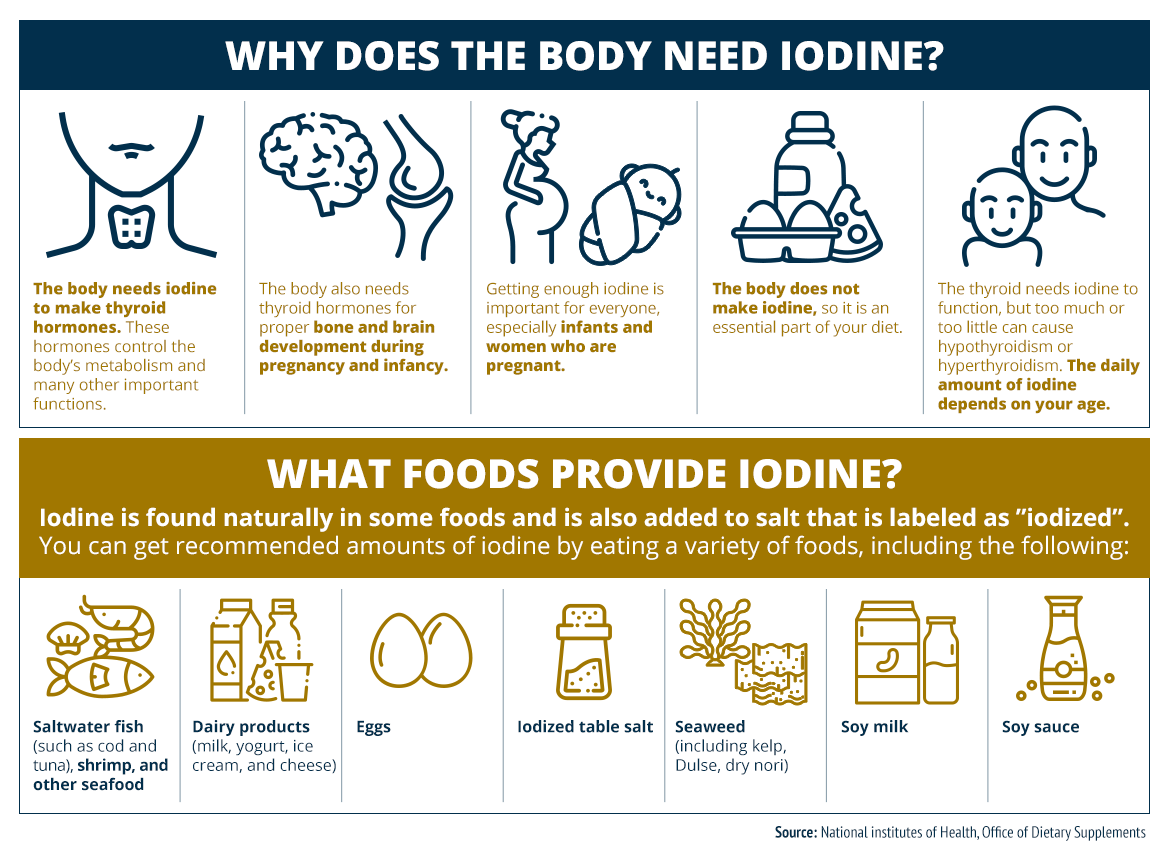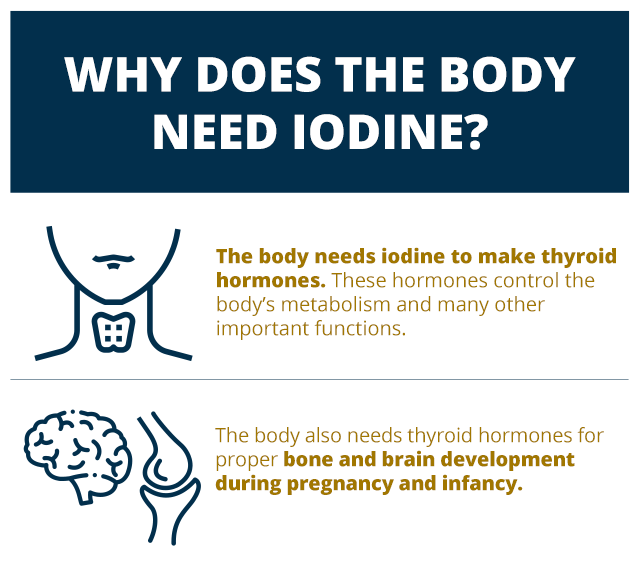2 Feb 2021
What to Eat to Avoid Thyroid Problems
Estimated read time: 5 minutes
There is no scientific, specially designed diet for people with thyroid conditions. But there are recommendations to maintain a healthy diet and help this essential gland function.
Caring for the thyroid with a balanced diet containing fruits, vegetables, lean white meat and whole grains not only helps this powerful gland work, but also benefits the digestive system and heartbeat, both of which are vital for a good, balanced metabolism.
Balance is the cornerstone of the thyroid gland, and iodine is the key to it.
Iodine is naturally present in soil and seawater. The availability of iodine in food varies in different regions of the world. In some places, people can get the amount they need by consuming iodized table salt, or eating food with high iodine content. However, the amount of iodine in food is not always listed on food packaging, and it can be difficult to identify sources of iodine in food.
It’s important to note that processed foods, such as canned soups, almost never contain iodized salt. What’s more, special salts such as sea salt, Kosher salt or Himalayan salt are usually not iodized. The product labels will indicate whether the salt is “iodized” or provides iodine.
Are There Any Thyroid Superfoods?
Although there is no predetermined diet to protect the thyroid, some experts believe that there are foods that can help keep it healthy. These include:
- Iodine-rich foods such as seaweed (wakame or nori) and shrimp.
- Salted nuts, such as Brazil nuts or cashews, that contain a high amount of selenium.
- Grilled or baked fish, such as cod, salmon or tuna, which are rich in iodine, selenium and omega-3 fatty acids. Selenium also plays a vital role in metabolism and thyroid function, and helps protect the body from damage caused by oxidative stress.
- Ice cream and dairy products, which are rich in iodine. The thyroid also needs iodine to prevent the gland from becoming enlarged, a condition known as goiter.
- Fresh eggs, especially whole eggs with whites and yolks, as they contain iodine and selenium.

Here are some more tips to help improve your diet:
- Protein should come from lean, low-fat sources such as fish and legumes.
- Choose “good” oils like olive or vegetable (sunflower, canola, or avocado) oil which are low in saturated fat.
- Generally reduce your intake of saturated fat, which is primarily present in animal products like meat or cheese.
- Choose your carbohydrates wisely: consume more of them from whole grains and fruits, and less from cookies, candies, French fries and soda.
- Increase your consumption of fiber, which is primarily present in whole grains and a wide variety of vegetables.
On the other hand, there are foods you should avoid because they can interact with medications that treat thyroid conditions. For example:
- Food with high soy protein content, such as tofu, soy milk and some legumes, as large amounts of it can interfere with thyroid hormone absorption.
- Medications or supplements with excessive amounts of iodine, as they may alter thyroid hormone levels.
If you are taking a thyroid hormone, it’s best to avoid taking it at the same time as or while consuming:
- Walnuts
- Soybean flour
- Iron supplements
- Calcium supplements
- Antacids containing magnesium, calcium or aluminum
- Some ulcer medications
- Some cholesterol-lowering medications
You should consume these several hours before or after you take the medication.
If you have thyroid problems, good nutrition is also essential because your thyroid function can affect your weight. Any imbalance can make you gain or lose weight.
What Is the Thyroid and How Does it Work?

The thyroid is a butterfly-shaped gland located in the neck, right above the collarbone. It is one of the endocrine glands, which produce hormones.
Thyroid hormones control the rhythm of many body activities, including:
- How fast calories are burned
- How fast the heart beats (breathing and heart rate)
- Digestive function
- Mood
Thyroid function tests can check whether the thyroid is working properly. They are also used to diagnose and help find the cause of thyroid diseases, including hyperthyroidism and hypothyroidism. Thyroid tests include blood tests and imaging exams.
Most Common Conditions
Hyperthyroidism. Also known as overactive thyroid, this occurs when the thyroid gland produces more thyroid hormones than the body needs.
Hypothyroidism or underactive thyroid. This occurs when the thyroid gland does not produce enough thyroid hormones to satisfy the body’s needs.
Iodine deficiency. Iodine is essential for the production of thyroid hormones and must be obtained from diet, as the body cannot produce iodine. Iodine is found in various foods, and naturally in soil and seawater.
The United States is considered to be a region with sufficient iodine, but many other parts of the world are considered iodine deficient. Approximately 40% of the world’s population is at risk of iodine deficiency. How can we tackle this problem?
The following groups may be at risk of iodine deficiency:
- People who don’t eat iodized salt. Adding iodine to salt is the most commonly used strategy to control iodine deficiency. Currently, around 88% of households worldwide use iodized salt.
- Pregnant women. Pregnant women need approximately 50% more iodine than other women to provide enough iodine for their baby.
- People following a vegan diet or who eat few or no dairy products, seafood or eggs, the best sources of iodine.
- People who live in regions with iodine-deficient soil and primarily eat local foods. This soil produces crops with low levels of iodine. Some of the regions with iodine-poor soil are found in mountainous zones, such as the Himalayan, Alps and Andes regions.
- People who get a low amount of iodine and also eat foods containing goitrogens. Goitrogens are chemical compounds that interfere with the way the body uses iodine. They are present in some vegetables, such as soy, and cruciferous vegetables like cabbage, broccoli, cauliflower and Brussels sprouts.
Can Iodine Harm Your Health?
Yes, if too much is consumed. Ingesting high doses of iodine can cause some of the same symptoms as iodine deficiency, like goiter (enlarged thyroid gland). High doses of iodine can also cause thyroid inflammation and thyroid cancer.
It’s important to remember that people should obtain most of their nutrients from food. The vitamins, minerals, dietary fibers and other substances that are beneficial for your health can be found in what you eat. In some cases, taking dietary supplements can supply the nutrients that the body may not be getting from your daily diet for any reason. But you should always confirm this decision with your doctor.






